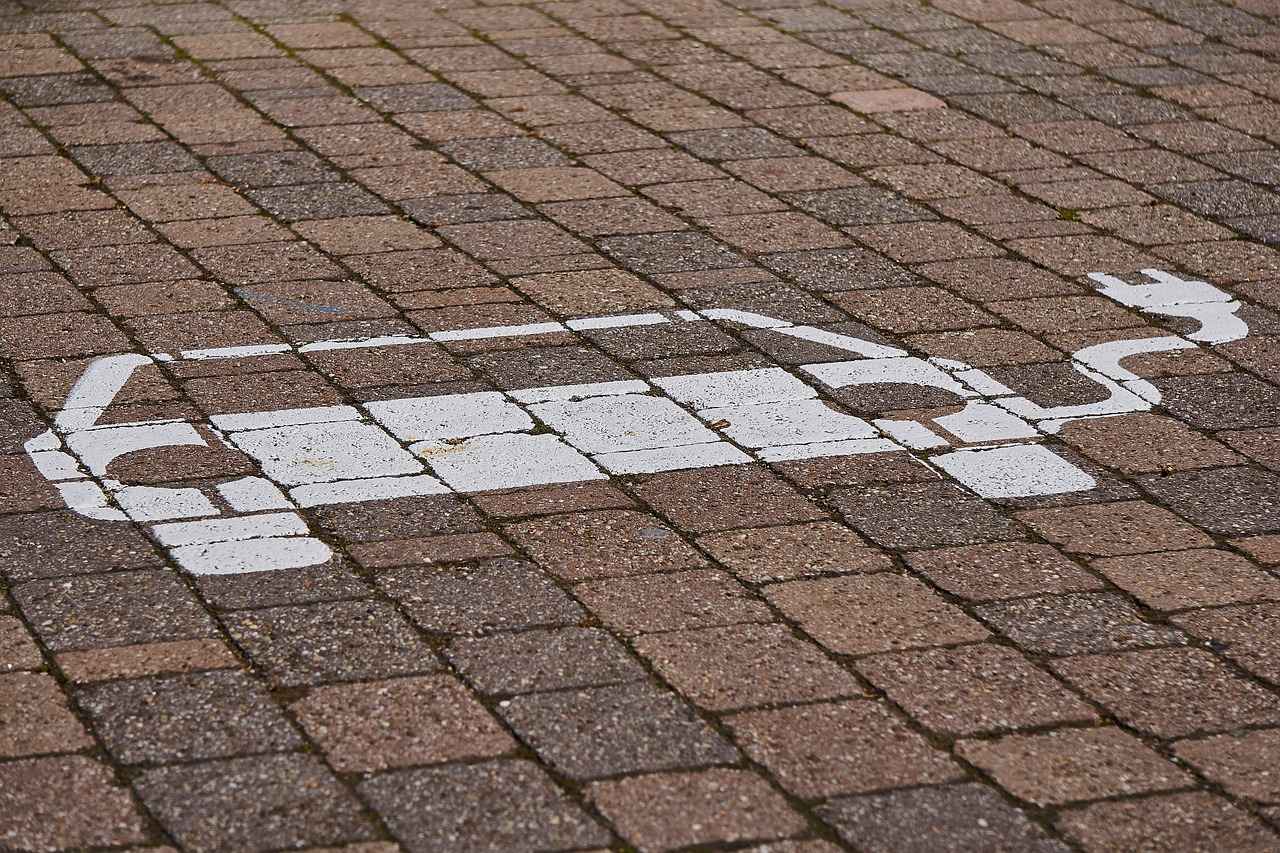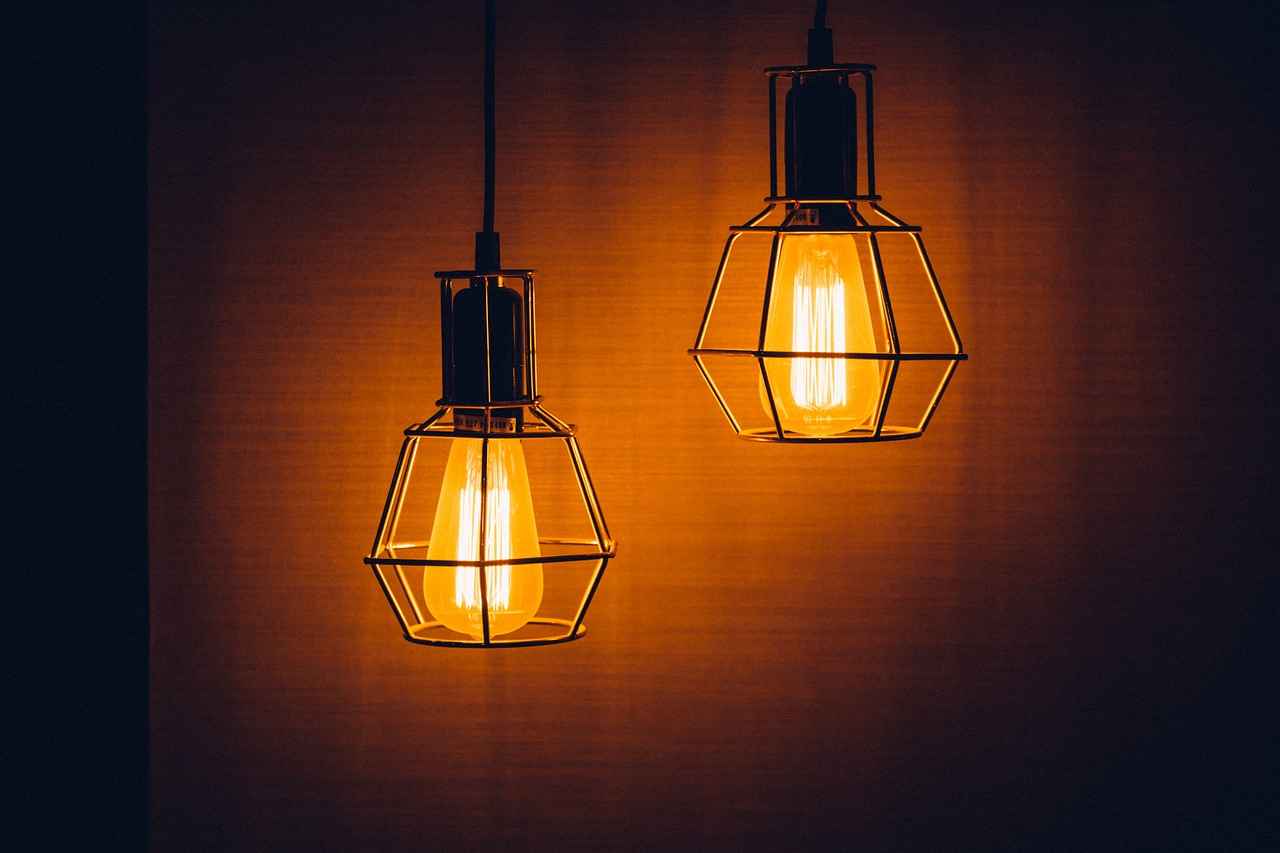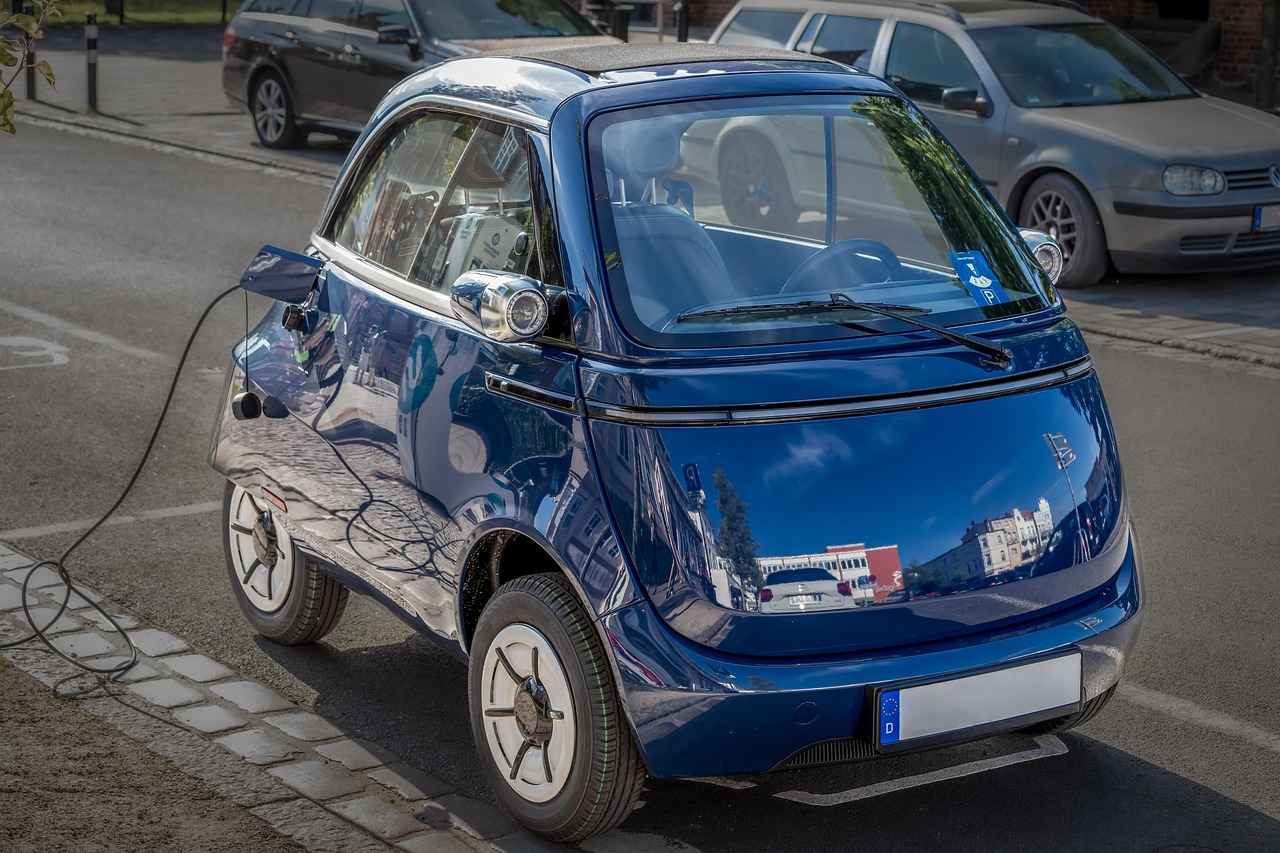This article delves into the rise of electric bikes as a sustainable transportation solution, examining their benefits, technology, and impact on urban mobility.
The Growing Popularity of Electric Bikes
Electric bikes have surged in popularity across the globe. Their eco-friendly characteristics and ease of use have captivated a wide range of users, including daily commuters and leisure cyclists. With advancements in technology, they are becoming more accessible and appealing to the masses.
Environmental Benefits of Electric Bikes
- Reducing Carbon Footprint: Transitioning to electric bikes can significantly lower individual carbon footprints, a vital step in the fight against climate change.
- Comparison with Cars: Unlike traditional vehicles, electric bikes generate zero tailpipe emissions, making them a cleaner option for urban areas.
- Impact on Urban Air Quality: The adoption of electric bikes can enhance air quality in cities, leading to improved public health and reduced pollution-related illnesses.
Energy Efficiency of Electric Bikes
Electric bikes demonstrate remarkable energy efficiency, requiring less energy to cover the same distances compared to traditional vehicles. This efficiency translates into significant cost savings for daily commuters.
Technological Advancements in Electric Bikes
- Battery Technology Improvements: Innovations in battery technology have resulted in longer-lasting and faster-charging batteries, enhancing the practicality of electric bikes.
- Smart Features and Connectivity: Modern electric bikes are equipped with features such as GPS tracking and smartphone integration, improving safety and user experience.
The Economic Impact of Electric Bikes
The rise of electric bikes is positively influencing local economies by creating jobs in manufacturing, retail, and maintenance sectors, which contributes to overall economic growth.
Challenges Facing Electric Bike Adoption
- Infrastructure Limitations: Many urban areas lack adequate bike lanes and charging stations, which can discourage potential users.
- Public Perception and Awareness: Misunderstandings about electric bikes can limit their acceptance; thus, education is crucial for increasing adoption.
The Future of Electric Bikes in Urban Mobility
Electric bikes are set to play a pivotal role in the future of urban mobility, offering a sustainable alternative to conventional transportation methods. Integrating electric bikes with public transit systems can create a seamless travel experience, encouraging more individuals to choose eco-friendly options.
In conclusion, the transition to electric bikes represents a significant step towards a more sustainable and efficient urban transportation system. With continued advancements in technology and infrastructure, electric bikes are poised to transform how we navigate our cities.

The Growing Popularity of Electric Bikes
Electric bikes are rapidly gaining traction across the globe, becoming a popular choice for various types of riders. This growth can be attributed to their eco-friendly attributes and unmatched convenience, appealing to everyone from daily commuters to weekend adventurers.
The surge in electric bike usage can be seen in urban areas where traffic congestion and pollution are prevalent. Many individuals are opting for electric bikes as a sustainable alternative to traditional vehicles, which often contribute to traffic jams and increased carbon emissions. The ability to bypass congested roads while enjoying the fresh air is a significant draw for many riders.
Moreover, electric bikes are equipped with advanced technology that enhances the riding experience. Features such as pedal assist and throttle control make cycling less strenuous, allowing riders of all fitness levels to enjoy the benefits of biking without the physical strain typically associated with traditional bicycles. This accessibility has broadened the demographic of electric bike users, making them popular among older adults and those who may have previously found biking challenging.
In addition to their convenience, electric bikes offer economic advantages. They are generally more affordable to operate than cars, with lower maintenance and no fuel costs. This financial benefit is particularly appealing in urban settings where parking fees and fuel prices can add up quickly.
As electric bike adoption continues to rise, cities are beginning to recognize their potential in improving urban mobility. With the implementation of dedicated bike lanes and charging stations, the infrastructure is gradually adapting to support this growing trend.
In conclusion, the increasing popularity of electric bikes signifies a shift towards more sustainable transportation solutions. Their environmental benefits, convenience, and cost-effectiveness make them an appealing choice for a diverse range of riders, paving the way for a greener future in urban mobility.

Environmental Benefits of Electric Bikes
As the world grapples with the challenges of climate change and urban pollution, electric bikes have emerged as a vital solution for promoting sustainable transportation. Their adoption not only addresses environmental concerns but also enhances the quality of life in urban areas.
Significant Reduction in Carbon Emissions
One of the most compelling advantages of electric bikes is their ability to significantly reduce carbon emissions. Unlike traditional vehicles that rely on fossil fuels, electric bikes operate on electricity, producing zero tailpipe emissions. This transition plays a crucial role in mitigating the effects of climate change by lowering the overall carbon footprint of urban transportation.
Cleaner Air for Healthier Cities
By replacing cars with electric bikes, cities can experience improved air quality. Studies have shown that areas with higher usage of electric bikes see a marked decrease in air pollutants, which are linked to respiratory diseases and other health issues. Cleaner air contributes to a healthier population and enhances the livability of urban environments.
Noise Pollution Reduction
In addition to reducing carbon emissions, electric bikes also contribute to lower noise pollution. Traditional vehicles generate significant noise, which can be detrimental to mental health and overall well-being. Electric bikes, being much quieter, help create a more peaceful urban atmosphere, making cities more enjoyable for residents and visitors alike.
Encouraging Sustainable Urban Mobility
The rise of electric bikes encourages a shift towards more sustainable urban mobility solutions. As cities invest in infrastructure for electric bikes, such as dedicated lanes and charging stations, they promote a culture of cycling that benefits both the environment and the community.
Conclusion
In summary, electric bikes represent a promising avenue for enhancing environmental sustainability in urban settings. Their ability to reduce carbon emissions, improve air quality, and decrease noise pollution makes them an essential component of the future of transportation. By embracing electric bikes, cities can foster a cleaner, healthier, and more sustainable environment for all.
Reducing Carbon Footprint
In today’s world, the urgent need to address climate change has become increasingly evident. One of the most effective ways individuals can contribute to this fight is by adopting eco-friendly transportation methods. Switching to electric bikes is not just a trend; it represents a significant step towards reducing our carbon footprint and promoting sustainable living.
Electric bikes, or e-bikes, offer a myriad of benefits that extend beyond personal convenience. By utilizing electric bikes, individuals can dramatically cut down their greenhouse gas emissions compared to traditional gas-powered vehicles. This shift is crucial for several reasons:
- Zero Tailpipe Emissions: Unlike cars, electric bikes produce no tailpipe emissions, which means they do not release harmful pollutants into the atmosphere. This is particularly important in urban areas where air quality is often compromised.
- Energy Efficiency: Electric bikes are more energy-efficient, requiring significantly less energy to travel the same distance as a car. This efficiency translates to lower energy consumption overall.
- Encouraging Active Lifestyles: E-bikes promote physical activity, as riders still engage in pedaling, albeit with assistance. This can lead to healthier lifestyles and reduced healthcare costs.
- Decreasing Traffic Congestion: By opting for electric bikes, individuals contribute to reducing the number of cars on the road, which helps alleviate traffic congestion and its associated environmental impacts.
Furthermore, the adoption of electric bikes can lead to improved urban air quality. As more people choose to ride instead of drive, cities can experience a significant reduction in harmful pollutants, leading to better public health outcomes.
In conclusion, switching to electric bikes is a proactive measure that individuals can take to combat climate change. By embracing this sustainable mode of transportation, we not only reduce our carbon footprint but also contribute to a healthier planet for future generations.
Comparison with Cars
When evaluating transportation options, the differences between electric bikes and traditional cars become strikingly clear. One of the most significant advantages of electric bikes is that they produce zero tailpipe emissions. This stark contrast to cars, which emit harmful pollutants such as carbon monoxide and nitrogen oxides, positions electric bikes as a more environmentally friendly choice, particularly in urban settings.
With the rising concern over air quality and climate change, the adoption of electric bikes can play a crucial role in reducing urban air pollution. Studies show that cities with higher electric bike usage report improved air quality, which directly correlates with better public health outcomes. In addition to cleaner air, electric bikes contribute to lower noise pollution, creating a more pleasant urban environment.
Moreover, electric bikes are energy-efficient compared to cars. They require significantly less energy to travel the same distance, making them a cost-effective option for daily commuting. This efficiency not only benefits the rider’s wallet but also reduces the overall energy demand on urban infrastructures.
| Feature | Electric Bikes | Cars |
|---|---|---|
| Emissions | Zero Tailpipe Emissions | High Pollutant Emissions |
| Noise | Low Noise Levels | High Noise Levels |
| Energy Efficiency | Highly Efficient | Less Efficient |
| Cost of Use | Lower Maintenance and Fuel Costs | Higher Maintenance and Fuel Costs |
In conclusion, the comparison between electric bikes and cars highlights the numerous benefits of choosing electric bikes as a primary mode of transportation. With their environmental advantages, cost-effectiveness, and contribution to improved urban living conditions, electric bikes are not just a trend but a sustainable solution for modern transportation challenges.
Impact on Urban Air Quality
The integration of electric bikes into urban transportation systems is proving to be a game-changer in the quest for improved air quality in cities. As urban areas continue to grapple with the challenges posed by vehicle emissions, the adoption of electric bikes presents a viable solution to mitigate pollution levels. By replacing traditional gas-powered vehicles with electric bikes, cities can significantly reduce harmful emissions that contribute to poor air quality.
Reduction of Harmful Emissions
Electric bikes produce zero tailpipe emissions, which directly contributes to cleaner air. In contrast, conventional vehicles release a variety of pollutants, including nitrogen oxides and particulate matter, which can exacerbate respiratory issues and other health problems. By promoting the use of electric bikes, cities can reduce these harmful emissions, leading to a healthier environment for all residents.
Health Benefits for Urban Populations
- Lower rates of respiratory diseases
- Reduction in hospital visits related to pollution
- Improved overall public health and well-being
Studies indicate that areas with higher usage of electric bikes experience a marked improvement in air quality, which can lead to better health outcomes for the population. This is particularly crucial in densely populated urban centers where air pollution levels are often at their highest.
Encouraging Sustainable Urban Mobility
By incentivizing the use of electric bikes through infrastructure development, such as dedicated bike lanes and charging stations, cities can create a more sustainable transportation ecosystem. This not only enhances air quality but also promotes a culture of healthy living and environmental stewardship.
Conclusion
In conclusion, the shift towards electric bikes represents a significant opportunity for cities to improve air quality and public health. By reducing emissions and encouraging more sustainable transportation options, urban areas can create a cleaner, healthier environment for their residents.
Energy Efficiency of Electric Bikes
Electric bikes, often referred to as e-bikes, are revolutionizing the way we think about transportation. One of their most significant advantages is their energy efficiency. Unlike traditional vehicles, which consume a considerable amount of energy for short trips, e-bikes require substantially less energy to cover the same distance. This makes them not only an environmentally friendly option but also a cost-effective choice for daily commuting.
To illustrate this point, let’s consider the energy consumption of electric bikes compared to cars:
| Vehicle Type | Energy Consumption (per mile) |
|---|---|
| Electric Bike | 0.1 kWh |
| Gasoline Car | 0.4 kWh |
As shown in the table, electric bikes consume significantly less energy per mile compared to gasoline-powered cars. This efficiency translates into lower operating costs for riders. With electricity prices generally being lower than gasoline prices, e-bike users can save a considerable amount on their commuting expenses.
- Lower Energy Costs: The cost of charging an electric bike is minimal compared to fueling a car.
- Reduced Maintenance: E-bikes have fewer moving parts, leading to lower maintenance costs over time.
- Longer Distances: Improved battery technology allows for longer distances on a single charge, making e-bikes practical for various commuting needs.
Moreover, as cities become more congested, electric bikes offer a solution that alleviates traffic problems while promoting sustainable living. They can easily navigate through urban environments, allowing riders to bypass traffic jams and reach their destinations more efficiently.
In conclusion, the energy efficiency of electric bikes not only benefits the individual rider through cost savings but also contributes to a greener planet. By choosing e-bikes over traditional vehicles, we can collectively reduce our carbon footprint and pave the way for a more sustainable future.

Technological Advancements in Electric Bikes
In recent years, the world of electric bikes has witnessed remarkable technological advancements that have transformed them into a viable alternative for transportation. These innovations have not only enhanced their performance but also significantly improved their safety and overall user experience, making electric bikes more appealing to a wider audience.
- Battery Technology Improvements: One of the most significant advancements has been in battery technology. Modern electric bikes now feature batteries that are not only longer-lasting but also faster to charge. This means riders can enjoy extended trips without the anxiety of running out of power, making electric bikes suitable for daily commuting.
- Smart Features and Connectivity: Today’s electric bikes come equipped with smart technology. Features such as GPS tracking, smartphone connectivity, and integrated navigation systems enhance the riding experience. Riders can easily monitor their speed, distance, and battery levels, leading to a more informed and enjoyable ride.
- Enhanced Safety Features: Safety has become a priority with the introduction of advanced braking systems, improved lighting, and reflective materials. These features ensure that riders are visible and can stop quickly, especially in urban environments where traffic can be unpredictable.
- Lightweight Materials: The use of lightweight, durable materials such as carbon fiber and aluminum has made electric bikes easier to handle and more efficient. This reduction in weight allows for better speed and maneuverability, appealing to both casual riders and serious cyclists.
- Customizable Options: Many manufacturers now offer customizable electric bikes that cater to individual preferences. Riders can choose different levels of assistance, frame styles, and accessories, allowing for a personalized riding experience that meets their specific needs.
As these technological advancements continue to evolve, electric bikes are positioned to become an integral part of sustainable urban transportation. Their enhanced features not only make them more user-friendly but also encourage more people to adopt this eco-friendly mode of transport.
Battery Technology Improvements
have revolutionized the electric bike industry, making them not only more efficient but also more accessible for everyday use. As urban environments become increasingly congested, the demand for sustainable transportation solutions has surged. Electric bikes (e-bikes) are at the forefront of this movement, offering an eco-friendly alternative to traditional vehicles.
One of the most significant advancements in e-bike technology is the development of lithium-ion batteries. These batteries are known for their high energy density, which allows for longer rides without frequent recharging. Many modern e-bikes can now travel over 50 miles on a single charge, making them practical for daily commuting and leisure rides alike.
In addition to longer-lasting batteries, improvements in charging technology have also played a crucial role. Fast-charging capabilities mean that riders can recharge their bikes in a fraction of the time it took in the past. Some models can reach a full charge in under two hours, allowing users to quickly power up during work breaks or short stops.
| Battery Type | Range (miles) | Charging Time |
|---|---|---|
| Lithium-ion | 50+ | 2 hours |
| Lead-acid | 20-30 | 6-8 hours |
Moreover, advancements in battery management systems ensure that these batteries operate efficiently and safely. Features like temperature control and overcharge protection help extend battery life and enhance safety for users. These innovations not only improve performance but also contribute to the overall longevity of the bike.
As e-bike technology continues to evolve, we can expect even more breakthroughs in battery technology. Innovations such as solid-state batteries and improved recycling methods promise to further enhance the sustainability and efficiency of electric bikes, making them a viable option for a broader audience.
In conclusion, the advancements in battery technology are pivotal in increasing the practicality and appeal of electric bikes. With longer-lasting and faster-charging batteries, e-bikes are not just a trend but a sustainable solution for modern urban transportation.
Smart Features and Connectivity
have become defining characteristics of modern electric bikes, revolutionizing the way riders interact with their vehicles and the environment around them. These advancements not only enhance the overall riding experience but also significantly improve safety and convenience for users.
One of the most notable features is GPS tracking. This technology allows riders to monitor their routes in real-time, ensuring they never lose their way, even in unfamiliar areas. Additionally, GPS tracking can help in the event of theft, as it enables owners to locate their bikes quickly.
Moreover, many electric bikes now offer smartphone connectivity. By syncing with a mobile app, riders can access vital information such as battery life, distance traveled, and speed. This connectivity also allows for customization of settings, enabling users to adjust power levels and pedal assist modes according to their preferences.
| Feature | Benefits |
|---|---|
| GPS Tracking | Real-time navigation and theft recovery |
| Smartphone Connectivity | Access to performance metrics and customization options |
| Integrated Lighting Systems | Improved visibility and safety during night rides |
Additionally, some electric bikes are equipped with integrated lighting systems that automatically adjust based on ambient light conditions. This feature enhances safety, ensuring that riders are visible to others, particularly during low-light situations.
As manufacturers continue to innovate, the integration of smart technology in electric bikes is expected to grow, making them even more user-friendly and appealing to a broader audience. These advancements not only cater to tech-savvy riders but also promote safer and more efficient urban mobility.
In conclusion, the incorporation of smart features and connectivity into electric bikes is transforming the cycling experience. By enhancing safety, convenience, and user engagement, these technological advancements are paving the way for a new era in sustainable transportation.

The Economic Impact of Electric Bikes
The rise of electric bikes has not only transformed the way we think about transportation but has also had a significant impact on local economies. As these eco-friendly vehicles gain popularity, they are creating a ripple effect that benefits various sectors and communities.
Job Creation in the Electric Bike Industry
With the increasing demand for electric bikes, there is a growing need for skilled labor. This surge in demand has led to the creation of numerous jobs across multiple sectors. From manufacturing to retail and maintenance, the electric bike industry is fostering employment opportunities. According to recent studies, the electric bike sector is projected to generate thousands of jobs in the coming years, contributing positively to local economies.
Boosting Local Businesses
Electric bikes are not only creating jobs but are also boosting local businesses. Retail shops specializing in electric bike sales, accessories, and maintenance services are popping up in communities, contributing to economic growth. These businesses not only provide products but also create jobs, thus stimulating the local economy.
Cost Savings for Consumers
Electric bikes offer significant savings for consumers compared to traditional vehicles. With lower fuel and maintenance costs, they provide an affordable transportation alternative. This financial relief allows consumers to allocate their budgets to other local services and products, further benefiting the local economy.
Investment in Infrastructure
The rise of electric bikes necessitates improvements in infrastructure, such as bike lanes and charging stations. These investments not only enhance safety for riders but also create jobs in construction and urban planning. As cities adapt to accommodate electric bikes, the overall urban environment becomes more appealing, attracting businesses and residents alike.
Conclusion
In conclusion, the economic impact of electric bikes extends far beyond their initial purchase. They create jobs, boost local businesses, and encourage infrastructure investments, all of which contribute to a thriving local economy. As electric bikes continue to gain traction, their positive effects on communities will only deepen, making them a vital component of sustainable urban development.
Job Creation in the Electric Bike Industry
The rapid rise in the popularity of electric bikes is not just a trend; it signifies a fundamental shift in how we approach transportation. As more individuals opt for electric bikes over traditional vehicles, the demand for skilled labor across various sectors is surging. This demand encompasses a wide array of roles, from design and engineering to manufacturing and retail, thus fostering significant job creation.
- Design and Engineering: With the increasing complexity of electric bike technology, there is a growing need for talented designers and engineers who can innovate and create cutting-edge models. This includes enhancing battery efficiency, improving aerodynamics, and integrating smart technology.
- Manufacturing: As production ramps up to meet consumer demand, factories require skilled workers to assemble electric bikes. This sector is seeing a resurgence in manufacturing jobs, which can help revitalize local economies.
- Retail and Sales: The rise of electric bikes has led to the establishment of specialized retail outlets and online stores. These businesses need knowledgeable sales staff who can educate consumers about the benefits and features of electric bikes, contributing to job growth in the retail sector.
- Maintenance and Repair: With more electric bikes on the roads, there is an increasing need for technicians who can service and repair these vehicles. This creates opportunities for vocational training and apprenticeships in the automotive service industry.
Moreover, the electric bike industry is not only creating jobs but also promoting a sustainable economy. By investing in green transportation, communities can benefit from reduced pollution and improved public health, which in turn fosters a more vibrant workforce.
In conclusion, the surge in electric bike adoption is creating a ripple effect throughout the economy, generating numerous job opportunities across various sectors. As this trend continues, it will be essential for education and training programs to adapt, ensuring that the workforce is equipped with the skills necessary to thrive in this evolving landscape.
Cost Savings for Consumers
In today’s economy, financial considerations are at the forefront of many consumers’ minds. As fuel prices continue to rise and maintenance costs for traditional vehicles add up, many individuals are turning to electric bikes as a viable alternative. Not only do electric bikes provide a sustainable mode of transportation, but they also offer significant cost savings that can benefit riders in the long run.
- Fuel Savings: One of the most immediate savings comes from the reduced need for fuel. Electric bikes run on electricity, which is generally much cheaper than gasoline. Riders can charge their bikes at home for a fraction of the cost of filling up a car’s gas tank.
- Maintenance Costs: Electric bikes typically require less maintenance than traditional vehicles. With fewer moving parts and no need for oil changes, riders can expect to spend considerably less on upkeep. This translates to lower overall ownership costs.
- Insurance Savings: Insuring an electric bike is often less expensive than insuring a car. Many insurance companies offer discounts for electric bike owners, further enhancing the financial benefits of this mode of transportation.
- Tax Incentives: In some regions, government incentives and tax credits are available for purchasing electric bikes, making them even more affordable. These programs encourage consumers to make eco-friendly choices while saving money.
Moreover, the longevity of electric bike batteries has improved with advancements in technology, meaning that consumers can expect their investment to last longer, providing even more savings over time. Overall, the financial benefits of switching to electric bikes are clear. With lower fuel and maintenance costs, reduced insurance premiums, and potential tax incentives, electric bikes are a smart choice for consumers looking to save money while contributing to a healthier planet.

Challenges Facing Electric Bike Adoption
While electric bikes (e-bikes) offer numerous advantages, their widespread adoption is not without challenges. Understanding these hurdles is crucial for stakeholders aiming to promote e-bike use and enhance urban mobility.
- Regulatory Hurdles: Many regions have yet to establish clear regulations governing the use of electric bikes. This can create confusion among users and deter potential riders. Regulatory frameworks need to evolve to accommodate the unique characteristics of e-bikes, ensuring safety and accessibility.
- Public Perception: Misconceptions about electric bikes often hinder their acceptance. Some individuals may view e-bikes as less legitimate than traditional bicycles, believing they are only for the less physically active. Educating the public about the benefits of e-bikes, including their role in promoting physical activity and reducing traffic congestion, is essential.
- Infrastructure Limitations: The lack of adequate infrastructure, such as dedicated bike lanes and charging stations, can significantly impact e-bike adoption. Cities must invest in bike-friendly infrastructure to create a safe and convenient environment for e-bike users.
- Cost Barriers: Although e-bikes can save money in the long run, their initial purchase price can be a barrier for many potential users. Increased availability of affordable models and financial incentives can help make e-bikes more accessible to a broader audience.
- Battery Concerns: The lifespan and maintenance of e-bike batteries can also be a concern for users. As technology improves, manufacturers need to focus on creating long-lasting, easily replaceable batteries to enhance user confidence.
In conclusion, addressing these challenges through collaborative efforts from governments, manufacturers, and communities can pave the way for a more sustainable future where electric bikes become a mainstream mode of transportation.
Infrastructure Limitations
The adoption of electric bikes (e-bikes) faces significant hurdles, primarily due to inadequate infrastructure in many urban areas. Despite the increasing popularity of e-bikes as a sustainable transportation alternative, the lack of essential facilities can discourage potential riders from making the switch.
Insufficient Bike Lanes
One of the most pressing issues is the insufficient number of dedicated bike lanes. Many cities still prioritize car traffic over cycling, resulting in crowded roads that pose safety risks for e-bike riders. Without safe and accessible bike lanes, potential users may feel apprehensive about navigating through busy streets, ultimately deterring them from considering e-bikes as a viable commuting option.
Charging Stations Are Scarce
In addition to bike lanes, the lack of charging stations is another significant barrier. E-bikes rely on batteries that require regular charging, and without a network of accessible charging points, users may worry about their battery life during longer rides. The absence of charging infrastructure can limit the distance that riders are willing to travel, confining them to shorter, less advantageous routes.
Urban Planning Challenges
Urban planners often overlook the needs of e-bike users when designing city layouts. This oversight can lead to a disjointed transportation network that fails to integrate e-bikes with other forms of public transport. Effective urban planning should include provisions for e-bike lanes and charging facilities to encourage their adoption and ensure a smoother transition to greener transportation options.
Conclusion
Addressing these infrastructure limitations is crucial for promoting electric bike usage. By investing in dedicated bike lanes and charging stations, cities can create a more welcoming environment for e-bike riders, ultimately contributing to a greener, more sustainable future.
Public Perception and Awareness
play a crucial role in the adoption of electric bikes. Despite their numerous advantages, many misconceptions persist, which can hinder their acceptance among potential users. Addressing these misconceptions through education is essential for fostering a more positive view of electric bikes.
One common misconception is that electric bikes are only for the elderly or those lacking physical fitness. In reality, electric bikes are designed for a wide range of riders, including commuters, fitness enthusiasts, and even casual cyclists. They provide an accessible means of transportation, allowing individuals of various fitness levels to enjoy cycling without the intimidation of traditional biking.
Another prevalent myth is that electric bikes are too expensive. While the initial investment may be higher compared to conventional bicycles, the long-term savings on fuel, maintenance, and parking can make them a cost-effective choice. Additionally, many governments offer incentives and subsidies to encourage electric bike purchases, further reducing the financial burden on consumers.
Furthermore, safety concerns often arise, with some people believing that electric bikes are more dangerous than regular bicycles. However, studies indicate that electric bike riders are generally more cautious, and the increased visibility and speed of electric bikes can enhance safety when proper bike lanes and infrastructure are in place.
To combat these misconceptions, it is vital to provide accurate information through community outreach, educational programs, and social media campaigns. By showcasing the benefits of electric bikes, such as their environmental impact, cost savings, and health advantages, we can shift public perception and encourage more individuals to consider adopting this sustainable mode of transportation.
In conclusion, addressing public perception and increasing awareness about electric bikes is essential for their growth in popularity. By dispelling myths and highlighting their benefits, we can pave the way for a greener future.

The Future of Electric Bikes in Urban Mobility
As cities continue to grow and evolve, the need for sustainable and efficient transportation solutions becomes increasingly urgent. Electric bikes (e-bikes) are emerging as a transformative force in urban mobility, offering a viable alternative to traditional transportation methods. Their integration into city life is not only beneficial for the environment but also enhances the overall commuting experience.
Why Are Electric Bikes Gaining Popularity?
The popularity of electric bikes is surging globally, driven by a combination of environmental awareness and technological advancements. More people are recognizing the benefits of using e-bikes for daily commutes, errands, and recreational activities. With their eco-friendly design and ability to navigate congested urban areas easily, e-bikes are becoming a preferred choice for many.
Environmental Impact and Sustainability
- Reduction in Carbon Emissions: Electric bikes produce zero tailpipe emissions, significantly lowering the carbon footprint compared to cars.
- Improved Urban Air Quality: By replacing short car trips with e-bike rides, cities can experience cleaner air and reduced health risks associated with pollution.
Technological Innovations Driving E-Bike Adoption
Recent advancements in battery technology have made electric bikes more accessible and user-friendly. With longer-lasting batteries and faster charging times, e-bikes are now a practical choice for everyday use. Additionally, features such as GPS and smartphone connectivity enhance safety and convenience for riders.
Economic Benefits of Electric Bikes
The rise of electric bikes is also contributing positively to local economies. The demand for e-bikes is creating jobs in manufacturing, sales, and maintenance sectors. Moreover, consumers can save significantly on fuel and maintenance costs, making e-bikes a financially savvy option.
Challenges to Overcome for Widespread Adoption
Despite their many advantages, electric bikes face challenges that could hinder their adoption. Infrastructure limitations, such as insufficient bike lanes and charging stations, need to be addressed. Additionally, public perception and awareness must be improved to encourage more people to consider e-bikes as a viable transportation option.
Conclusion: The Role of Electric Bikes in Future Urban Mobility
Electric bikes are not just a trend; they represent a significant shift in how we think about urban transportation. By integrating e-bikes with public transport systems and supporting them through favorable policies, cities can foster a more sustainable and efficient mobility landscape. As we look to the future, electric bikes will undoubtedly play a crucial role in shaping the way we move within our urban environments.
Integration with Public Transportation
As urban areas continue to grow, the need for efficient and sustainable transportation solutions has never been more critical. Integrating electric bikes into public transport systems stands out as a promising strategy to enhance mobility and promote eco-friendly travel options. This integration not only facilitates a seamless travel experience for commuters but also encourages a shift towards more sustainable transportation choices.
Seamless Travel Experience
By incorporating electric bikes into public transport, cities can offer a cohesive travel experience that allows passengers to easily transition between different modes of transportation. For instance, commuters can ride an electric bike to the nearest bus or train station, park it securely, and continue their journey without the hassle of traffic or parking. This last-mile solution addresses a common challenge faced by many urban dwellers.
Encouraging Sustainable Choices
When electric bikes are integrated with public transport, they provide a viable alternative to single-occupancy vehicles. This shift can significantly reduce congestion and lower carbon emissions. Cities that promote this integration often see an increase in the use of public transport, as the convenience of electric bikes makes commuting more appealing. Moreover, the availability of electric bikes can attract individuals who might otherwise choose to drive, contributing to a greener urban environment.
Infrastructure Development
For successful integration, cities must invest in the necessary infrastructure, such as dedicated bike lanes and charging stations. This investment not only supports electric bike usage but also enhances overall urban mobility. As cities evolve, the development of integrated transport networks that include electric bikes will be essential for fostering sustainable urban growth.
Conclusion
In summary, the integration of electric bikes into public transport systems is a crucial step toward creating a more sustainable and efficient urban mobility landscape. By facilitating a seamless travel experience and encouraging the use of eco-friendly transportation options, cities can contribute to a healthier planet and improve the quality of life for their residents.
Potential for Policy Support
The transition to electric bikes as a mainstream mode of transportation is significantly influenced by government policies. These policies can play a crucial role in promoting the adoption of electric bikes, thereby enhancing urban mobility solutions. By implementing strategic measures such as subsidies, tax incentives, and infrastructure investments, governments can encourage more individuals to choose electric bikes over traditional vehicles.
Subsidies and Financial Incentives
One of the most effective ways to stimulate electric bike adoption is through subsidies. Financial support can lower the initial cost of purchasing an electric bike, making it more accessible to a broader audience. Additionally, tax incentives for electric bike manufacturers can encourage innovation and production, further driving down prices for consumers.
Infrastructure Development
Investment in infrastructure is equally vital. Cities need to develop dedicated bike lanes, charging stations, and safe parking facilities to support electric bike users. This infrastructure not only enhances safety but also promotes a culture of cycling, making it a viable option for daily commuting.
Public Awareness Campaigns
Governments can also run public awareness campaigns to educate citizens about the benefits of electric bikes. By addressing common misconceptions and highlighting the environmental and economic advantages, such campaigns can significantly boost public interest and acceptance.
Integration with Urban Mobility Plans
Moreover, integrating electric bikes into existing public transportation systems can create a seamless commuting experience. This integration encourages commuters to opt for electric bikes as a first or last-mile solution, thus reducing congestion and pollution in urban areas.
In conclusion, the potential for policy support is immense. By implementing comprehensive strategies that include subsidies, infrastructure investments, and public awareness initiatives, governments can accelerate the adoption of electric bikes and foster a more sustainable urban mobility landscape.
Frequently Asked Questions
- What are the main benefits of using electric bikes?
Electric bikes are eco-friendly, reduce carbon emissions, and offer a cost-effective transportation solution. They help improve urban air quality and provide a convenient way to navigate through congested city streets.
- How do electric bikes compare to traditional bicycles?
Electric bikes provide assistance while pedaling, making it easier to tackle hills and long distances. They also require less physical effort, making cycling accessible to a wider range of people, including those who may find traditional biking challenging.
- Are electric bikes safe to ride?
Yes, electric bikes are generally safe, especially when riders follow traffic rules and wear appropriate safety gear. Additionally, many modern electric bikes come equipped with advanced safety features like lights and reflective materials.
- What is the average range of an electric bike on a single charge?
The range can vary significantly based on the bike model and battery capacity, but most electric bikes can travel between 20 to 50 miles on a single charge, making them suitable for daily commutes.
- How can I maintain my electric bike?
Regular maintenance includes checking tire pressure, keeping the chain lubricated, and ensuring the battery is charged. It’s also important to periodically check brakes and lights to ensure everything is functioning properly.













